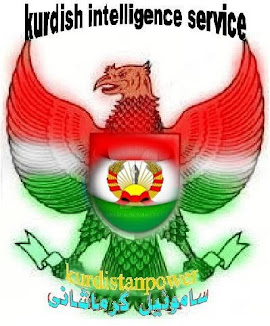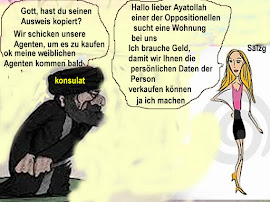CIA making backdoor deals with Hezbollah against ISIS
A few months ago, a former top CIA operative applied for a
Lebanese visa to do some work in Beirut for an oil company.
While he was
waiting for approval, a package arrived at his client’s office. Inside was a
full dossier on his CIA career. “It included things on where I had served, well
back into 1990s,” said Charles Faddis, who ran the CIA’s covert action program
in Kurdistan during the run-up to the 2003 invasion of Iraq, among other top
assignments. “It had details on my travels to Israel and Lebanon—years ago.”
Faddis took it as a blunt message from Hezbollah, the Iran-backed partner in
Lebanon’s coalition government that is equal parts political party, social service
agency, occupying army and terrorist group. “It was their way of saying, ‘We
don’t want this guy here, but we want business with you to go forward,’” Faddis
told Newsweek. It also was a way of underscoring—as if any emphasis was
needed—that to do business in Lebanon, you have to go through the “Party of
God.” And today that business includes the U.S. drive to recruit regional
partners to wage war on the Islamic State, the group more commonly known as
ISIS..
It’s a tricky minuet for two longtime lethal foes. In 1983
the US Navy shelled parts of Lebanon for a week and Hezbollah notoriously
responded dispatching a suicide bomber to the Marine Corps barracks at Beirut
International Airport, who killed 299 Marines and French servicemen. The same
year, it also bombed the U.S. Embassy in Beirut, killing 63 people, most of
them CIA and State Department personnel. It also kidnapping and executed Americans, including CIA station chief
William Buckley,
For several years now, however, there has been “unwritten,
unacknowledged cease-fire” between the combatants, as Faddis and several other
authoritative sources put it. “They know where we are and could easily take out
our officers,” a senior CIA official told Newsweek last year, on condition of
anonymity to discuss sensitive U.S.-Hezbollah relations. But they haven’t—not
that they have acquiesced to CIA operations in Beirut. In 2011, for example,
Hezbollah merely exposed the names and faces of some alleged CIA officers in
Lebanon, rather than killing them. Such restraint reflects Hezbollah’s
transformation from a Shiite movement and welfare service with an armed militia
and a terrorist arm to a powerful political force. The Party of God and its
allies now hold more than a third of the cabinet portfolios in Lebanon’s
coalition government and 12 seats in the parliament.
And that alone gives Hezbollah a virtual veto over CIA
operations in Lebanon, if not making them de facto partners against ISIS, whose
aim is to liquidate the forces of Syrian President Bashar Assad, Hezbollah’s
long-time protector. “The enemy of my enemy is a worst enemy,” quipped Ali
Soufan, a former top FBI counterterrorism official, speaking of the joint
interest of Shiite Hezbollah and Iran and the U.S. to “degrade and destroy,” as
President Obama put it, the Sunni Islamic State.
“Relations between [Hezbollah] and the U.S. are developing
positively,” a Lebanese newspaper quoted a pro-Western parliament member as
saying.But they are in no way allies, said Soufan, who now runs a private, New
York–based risk-analysis and intelligence-gathering firm stocked with former
FBI, CIA and British MI6 officials. They just have mutual interests.
“In Lebanon, there is a regional and an American consensus
to contain the conflict away from Lebanon and in Syria,” explains Faysal Itani,
a Middle East expert at the Atlantic Council in Washington, D.C. “The Saudis
have an interest in this, the Iranians do—everybody wants things to stay
relatively quiet. If you want things to remain quiet in Lebanon, that means you
work with the Lebanese army and Hezbollah, because those are the only capable
forces on the ground. And given that the Lebanese army is willing and able to
take on the Sunni jihadists, but has a very close and cooperative relationship
with Hezbollah, then what you have happening is a de facto
U.S.-Saudi-Lebanese-Hezbollah-Iranian collaboration in Lebanon.”
Both sides are loath to admit they have joint interests,
much less a de facto collaboration. Only days after a Hezbollah spokesman made
purring sounds about “the international community” confronting ISIS, its
leader, Sayyed Hassan Nasrallah, took to the airwaves to denounce America as
“the mother of terrorism.” Hezbollah, he said, opposed “Lebanon’s participation
in the U.S.-led coalition.”
The US rushed arms, including 480 anti-tank guided missiles,
more than 1,500 M16-A4 rifles, and “many mortars,” according to the U.S.
Embassy, were shipped through Beirut International Airport, which is controlled
by Hezbollah. In early September, another $9 million worth of arms arrived at
the airport, with $11 million more in the pipeline.Likewise, Obama
administration officials deny any collaboration with Hezbollah. But indirect
cooperation is impossible to avoid. In late August, after ISIS forces seized
control of a town on its Syrian border, Washington announced it was rushing $20
million worth of arms to the Lebanese Armed Forces (LAF), Hezbollah’s longtime
rival but now its ally in the fight against ISIS. Rami Khouri, director of the
Issam Fares Institute for Public Policy and International Affairs at the
American University of Beirut, called relations between the two “quite good”
since last winter. “It’s been clear for the last six months, since the [ISIS] bombings
in December and January in Beirut, that Hezbollah forces and intelligence had
been working much more closely with LAF, which is why it’s been relatively
quiet,” Khouri told the Syria Deeplywebsite. Washington has long had a close
relationship with the Lebanese army, dominated by Christians, through which
it’s now in an arm’s-length alliance with Hezbollah.
But the U.S.-Hezbollah relationship is rumored to go beyond
arms shipments to sharing intelligence. Abbas Ibrahim, head of the General
Security Directorate, Lebanon’s intelligence agency, is a Shiite, the same as
Hezbollah’s membership. “I’ve heard specific cases of plots disrupted and
militants captured based on intel shared between the United States, Iran and
Saudi Arabia,” says Itani, the Lebanese son of a Sunni father and Christian
mother. “I don’t imagine that this would take the form of direct contact
between the CIA and Hezbollah,” he added. “I think this is something that would
be shared with the Iranians” and then passed to Hezbollah.
The Americans began reaching out to Hezbollah in the spring
of 2012, according to the Washington, D.C.–based Middle East Media Reporting
Institute (MEMRI), an Israeli-connected outfit that compiles and analyzes
stories in the Arab-language press. “The reports state that at first, the U.S.
administration and Hizbullah exchanged intelligence information,” MEMRI said,
using another common spelling of the group’s name, “but later expanded the
contacts into a diplomatic and political relationship, and even into dealings
concerning domestic Lebanese politics.”
The Arab media “[focused] on the relationship between the
U.S. and the director of Lebanon’s General Security Directorate, Abbas
Ibrahim,” MEMRI added. “Although it is an official Lebanese body, this directorate,
and Ibrahim himself, are close to Hizbullah. Before heading General Security,
from 2005 to 2008, Ibrahim headed military intelligence in South Lebanon—and,
according to many Lebanese Sunnis, this apparatus and those in charge of it in
South Lebanon are pro-Hizbullah.”
Ibrahim was the go-between for CIA-Hezbollah contacts, said
MEMRI, whose board of advisers includes former CIA directors James Woolsey and
Michael Hayden. “According to Lebanese media reports, indirect CIA-Hizbullah
contacts were apparently initiated by the U.S., and have been under way since
at least April 2012, conducted by the U.S. Embassy in Beirut and Hizbullah
through Ibrahim,” MEMRI said. “These contacts culminated in cooperation
fighting Al-Qaeda and its offshoots and other extremist Sunni organizations.”
waiting for approval, a package arrived at his client’s office. Inside was a
full dossier on his CIA career. “It included things on where I had served, well
back into 1990s,” said Charles Faddis, who ran the CIA’s covert action program
in Kurdistan during the run-up to the 2003 invasion of Iraq, among other top
assignments. “It had details on my travels to Israel and Lebanon—years ago.”
Faddis took it as a blunt message from Hezbollah, the Iran-backed partner in
Lebanon’s coalition government that is equal parts political party, social service
agency, occupying army and terrorist group. “It was their way of saying, ‘We
don’t want this guy here, but we want business with you to go forward,’” Faddis
told Newsweek. It also was a way of underscoring—as if any emphasis was
needed—that to do business in Lebanon, you have to go through the “Party of
God.” And today that business includes the U.S. drive to recruit regional
partners to wage war on the Islamic State, the group more commonly known as
ISIS..
It’s a tricky minuet for two longtime lethal foes. In 1983
the US Navy shelled parts of Lebanon for a week and Hezbollah notoriously
responded dispatching a suicide bomber to the Marine Corps barracks at Beirut
International Airport, who killed 299 Marines and French servicemen. The same
year, it also bombed the U.S. Embassy in Beirut, killing 63 people, most of
them CIA and State Department personnel. It also kidnapping and executed Americans, including CIA station chief
William Buckley,
For several years now, however, there has been “unwritten,
unacknowledged cease-fire” between the combatants, as Faddis and several other
authoritative sources put it. “They know where we are and could easily take out
our officers,” a senior CIA official told Newsweek last year, on condition of
anonymity to discuss sensitive U.S.-Hezbollah relations. But they haven’t—not
that they have acquiesced to CIA operations in Beirut. In 2011, for example,
Hezbollah merely exposed the names and faces of some alleged CIA officers in
Lebanon, rather than killing them. Such restraint reflects Hezbollah’s
transformation from a Shiite movement and welfare service with an armed militia
and a terrorist arm to a powerful political force. The Party of God and its
allies now hold more than a third of the cabinet portfolios in Lebanon’s
coalition government and 12 seats in the parliament.
And that alone gives Hezbollah a virtual veto over CIA
operations in Lebanon, if not making them de facto partners against ISIS, whose
aim is to liquidate the forces of Syrian President Bashar Assad, Hezbollah’s
long-time protector. “The enemy of my enemy is a worst enemy,” quipped Ali
Soufan, a former top FBI counterterrorism official, speaking of the joint
interest of Shiite Hezbollah and Iran and the U.S. to “degrade and destroy,” as
President Obama put it, the Sunni Islamic State.
“Relations between [Hezbollah] and the U.S. are developing
positively,” a Lebanese newspaper quoted a pro-Western parliament member as
saying.But they are in no way allies, said Soufan, who now runs a private, New
York–based risk-analysis and intelligence-gathering firm stocked with former
FBI, CIA and British MI6 officials. They just have mutual interests.
“In Lebanon, there is a regional and an American consensus
to contain the conflict away from Lebanon and in Syria,” explains Faysal Itani,
a Middle East expert at the Atlantic Council in Washington, D.C. “The Saudis
have an interest in this, the Iranians do—everybody wants things to stay
relatively quiet. If you want things to remain quiet in Lebanon, that means you
work with the Lebanese army and Hezbollah, because those are the only capable
forces on the ground. And given that the Lebanese army is willing and able to
take on the Sunni jihadists, but has a very close and cooperative relationship
with Hezbollah, then what you have happening is a de facto
U.S.-Saudi-Lebanese-Hezbollah-Iranian collaboration in Lebanon.”
Both sides are loath to admit they have joint interests,
much less a de facto collaboration. Only days after a Hezbollah spokesman made
purring sounds about “the international community” confronting ISIS, its
leader, Sayyed Hassan Nasrallah, took to the airwaves to denounce America as
“the mother of terrorism.” Hezbollah, he said, opposed “Lebanon’s participation
in the U.S.-led coalition.”
The US rushed arms, including 480 anti-tank guided missiles,
more than 1,500 M16-A4 rifles, and “many mortars,” according to the U.S.
Embassy, were shipped through Beirut International Airport, which is controlled
by Hezbollah. In early September, another $9 million worth of arms arrived at
the airport, with $11 million more in the pipeline.Likewise, Obama
administration officials deny any collaboration with Hezbollah. But indirect
cooperation is impossible to avoid. In late August, after ISIS forces seized
control of a town on its Syrian border, Washington announced it was rushing $20
million worth of arms to the Lebanese Armed Forces (LAF), Hezbollah’s longtime
rival but now its ally in the fight against ISIS. Rami Khouri, director of the
Issam Fares Institute for Public Policy and International Affairs at the
American University of Beirut, called relations between the two “quite good”
since last winter. “It’s been clear for the last six months, since the [ISIS] bombings
in December and January in Beirut, that Hezbollah forces and intelligence had
been working much more closely with LAF, which is why it’s been relatively
quiet,” Khouri told the Syria Deeplywebsite. Washington has long had a close
relationship with the Lebanese army, dominated by Christians, through which
it’s now in an arm’s-length alliance with Hezbollah.
But the U.S.-Hezbollah relationship is rumored to go beyond
arms shipments to sharing intelligence. Abbas Ibrahim, head of the General
Security Directorate, Lebanon’s intelligence agency, is a Shiite, the same as
Hezbollah’s membership. “I’ve heard specific cases of plots disrupted and
militants captured based on intel shared between the United States, Iran and
Saudi Arabia,” says Itani, the Lebanese son of a Sunni father and Christian
mother. “I don’t imagine that this would take the form of direct contact
between the CIA and Hezbollah,” he added. “I think this is something that would
be shared with the Iranians” and then passed to Hezbollah.
The Americans began reaching out to Hezbollah in the spring
of 2012, according to the Washington, D.C.–based Middle East Media Reporting
Institute (MEMRI), an Israeli-connected outfit that compiles and analyzes
stories in the Arab-language press. “The reports state that at first, the U.S.
administration and Hizbullah exchanged intelligence information,” MEMRI said,
using another common spelling of the group’s name, “but later expanded the
contacts into a diplomatic and political relationship, and even into dealings
concerning domestic Lebanese politics.”
The Arab media “[focused] on the relationship between the
U.S. and the director of Lebanon’s General Security Directorate, Abbas
Ibrahim,” MEMRI added. “Although it is an official Lebanese body, this directorate,
and Ibrahim himself, are close to Hizbullah. Before heading General Security,
from 2005 to 2008, Ibrahim headed military intelligence in South Lebanon—and,
according to many Lebanese Sunnis, this apparatus and those in charge of it in
South Lebanon are pro-Hizbullah.”
Ibrahim was the go-between for CIA-Hezbollah contacts, said
MEMRI, whose board of advisers includes former CIA directors James Woolsey and
Michael Hayden. “According to Lebanese media reports, indirect CIA-Hizbullah
contacts were apparently initiated by the U.S., and have been under way since
at least April 2012, conducted by the U.S. Embassy in Beirut and Hizbullah
through Ibrahim,” MEMRI said. “These contacts culminated in cooperation
fighting Al-Qaeda and its offshoots and other extremist Sunni organizations.”



















.jpg)





.jpeg)






























Inga kommentarer:
Skicka en kommentar